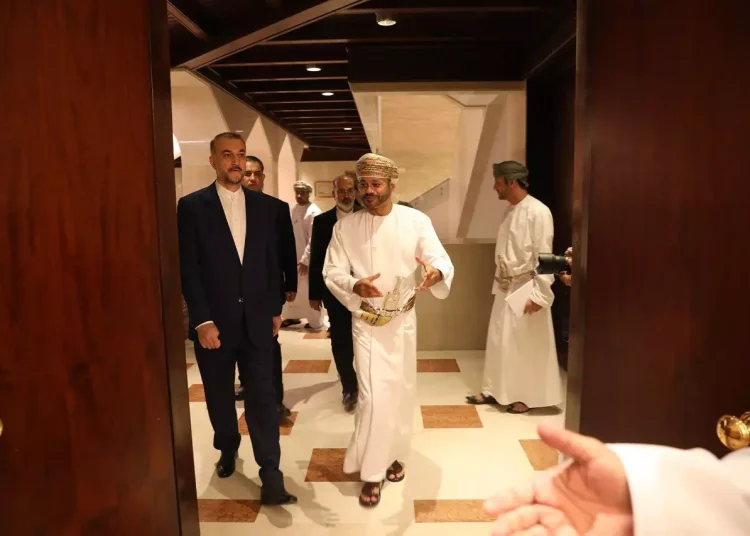Iran’s Foreign Minister, Hossein Amirabdollahian, embarked on a significant regional tour, commencing in Oman before proceeding to Syria and Lebanon.
The timing and regional context lend this journey particular importance. In Muscat, Amirabdollahian engaged in discussions with his Omani counterpart and a senior official from Yemen’s Ansarullah movement.
While bilateral matters with Oman are a routine part of such diplomatic visits, the recent Israeli assault on the Iranian consulate in Damascus has added urgency to these talks.
Following the attack on the consulate, Iran sent a written message to the US last Tuesday via the Swiss embassy in Tehran, urging Americans to step aside and to avoid repercussions. Couple of days later, the US responded, asking Iranian not to target American interests.
Oman has often served as an intermediary between Iran and the United States, facilitating the exchange of written messages between the two countries. It was expected that Amirabdollahian would use Omani channel to deliver a message to the US and more importantly to receive a new message from the American side during his visit to Muscat.
In a joint press conference with his Omani counterpart on Sunday, Iranian FM stated, “The US cannot evade its full and absolute complicity in Israel’s war crimes.”
He also tweeted about ongoing discussions regarding the Sultan of Oman’s initiative to facilitate the lifting of Iran sanctions, a dialogue previously stalled by recent developments in the region.
The meeting with Mohammad Abd al-Salam, a high-ranking representative of Yemen’s National Salvation Government, holds significance, particularly in light of the Israeli attacks on Gaza and Yemen’s role in acting against Israel. Amirabdollahian expressed gratitude to Yemen for supporting the Palestinian people.
He then described the assault on the Iranian consulate in Damascus as a terrorist act perpetrated with US-manufactured aircraft and missiles. Iranian FM said, “The Islamic Republic of Iran will undoubtedly exercise its legitimate rights under international law to ensure the punishment of the terrorist aggressors.”
Amirabdollahian’s forthcoming visit to Syria, his first since the consulate attack and the loss of senior Iranian military advisors, will include meetings with Syrian officials and assessments of the issues in relation to the attack. He is expected to visit Iranian embassy and consulate in Damascus.
The subsequent leg of his tour in Lebanon will focus on Tehran-Beirut relations, the situation in Gaza, Israel’s unmet objectives, and potential future scenarios.






